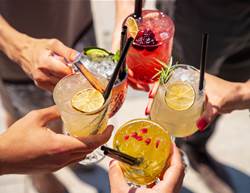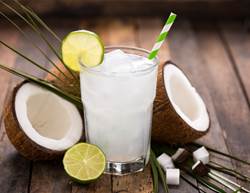Your Brain
Within minutes of your first sip, alcohol goes to work on the endorphin GABA, which acts like a sedative to calm the brain, as well as inhibiting glutamate, which makes the brain more active. It also increases dopamine, which creates a feeling of pleasure. Result? A relaxed, happy feeling for the first glass or two. But too much and you may feel sluggish and it could impact movement and speech.
Your Body
The average person will take about an hour to process 10g of alcohol, the amount in a standard drink. About 90-98 per cent of alcohol you drink is broken down in your liver. The other 2-10 per cent of alcohol is removed in your urine, breathed out through your lungs or excreted in sweat.
Your Skin
Facial redness and rosacea as well as poor skin texture can be caused by alcohol. It’s all about keeping hydrated, so keep up the H20.
Your Kidneys
Alcohol is a diuretic, so you have to urinate more often. Drinking too much means your kidneys have to work overtime to get rid of the toxins in your blood.
your Appetite Recent studies have found that alcohol fires up the neurons active when the body is starving. No wonder those chips looks so appealing.
Your desire
Short-term use of alcohol may decrease your inhibitions and so increase your desire for sex, but it does diminishes performance, delaying orgasm and ejaculation. So set the mood but don’t go overboard if you want to have a bit of fun later.
(Discover how to get more energy for life in the Dec/Jan issue of Prevention.)









